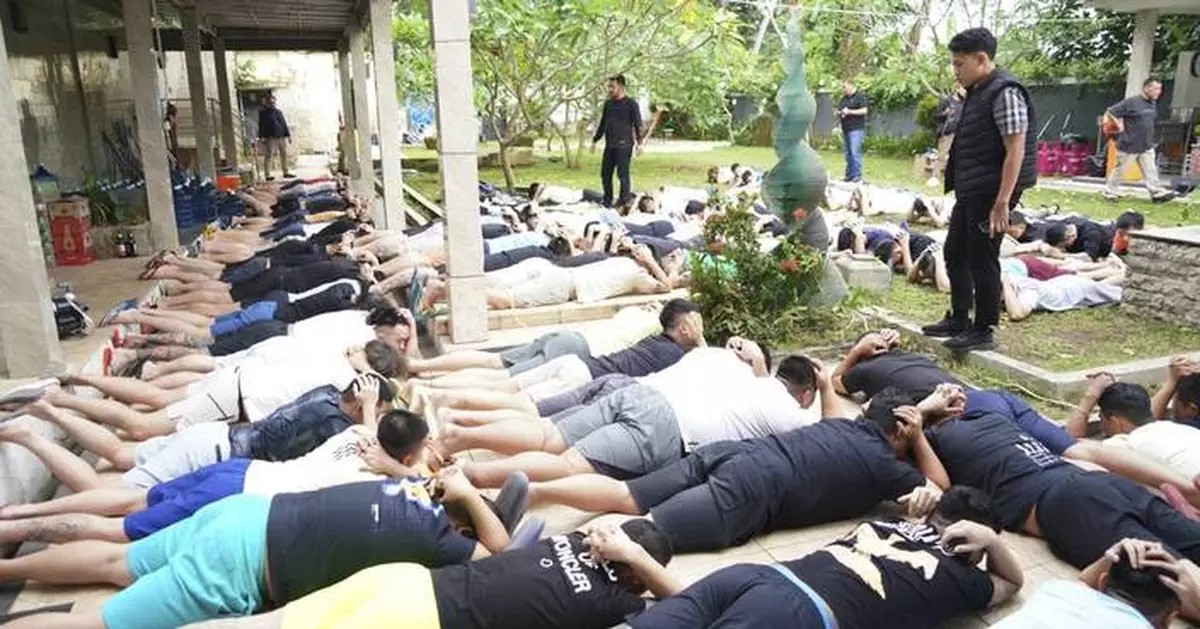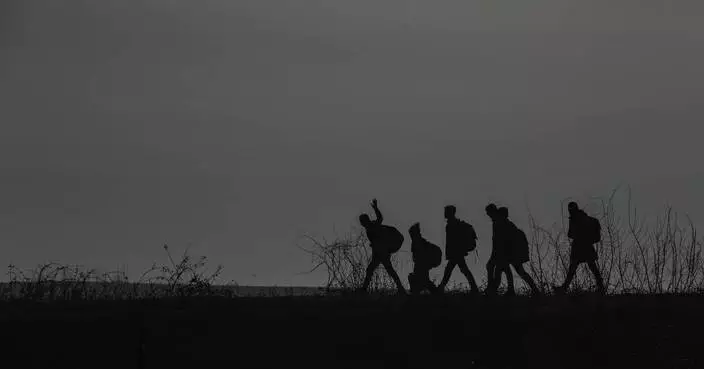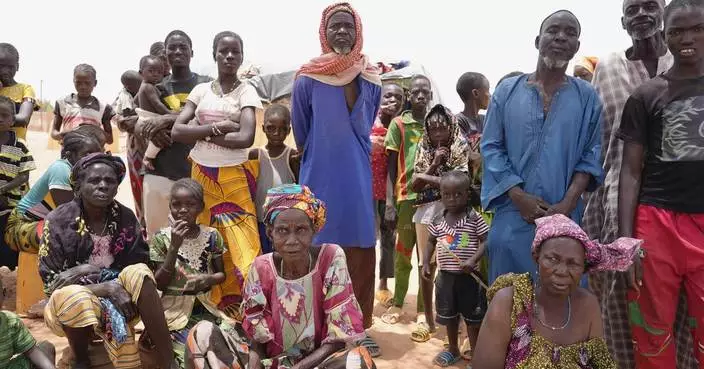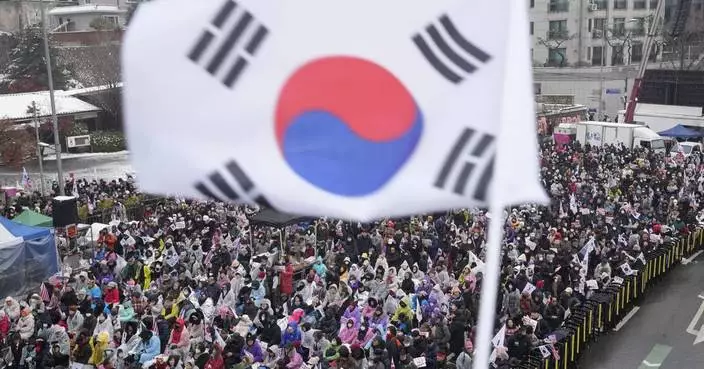DENPASAR, Indonesia (AP) — Indonesian immigration authorities have detained 103 Taiwanese people after a raid at a villa on the resort island of Bali, officials said Friday.
They were accused of misusing their visas and residence permits and are suspected of possible cybercrimes, Safar Muhammad Godam, director of immigration supervision and enforcement at the Ministry of Law and Human Rights told reporters at a news conference.
Godam said Indonesian authorities cannot charged them with conducting cybercrime. “During the inspection, we know that they are targeting people in Malaysia. They did their activities in Indonesia but the victims are in other countries, so it is very difficult to fulfill the criminal elements,” Godam said.
He added the 103 will be deported soon.
Immigration authorities conducted the raid Wednesday at a villa in Kukuh village in Tabanan district and detained 91 men and 12 women. Computers and cellphones were also seized, they said.
“They are suspected of not having documents and misuse of immigration permits. Currently, the possibility of cybercrime is being investigated based on the number of computers and cellphones found at the scene,” Silmy Karim, the director general of immigration, said in a statement Thursday.
Authorities distributed photos showing dozens of detainees lying on their stomachs next to a swimming pool and the three-story villa. All are being held at a detention center in Denpasar, Bali, officials said.
Authorities said they are investigating whether the group might have ties to international syndicates.
Indonesia’s Directorate General of Immigration plans to carry out another joint operation to monitor foreign nationals in Bali. It aims to ensure that foreigners are staying on the island in accordance with regulations and to maintain order and security.
Tarigan reported from Jakarta.
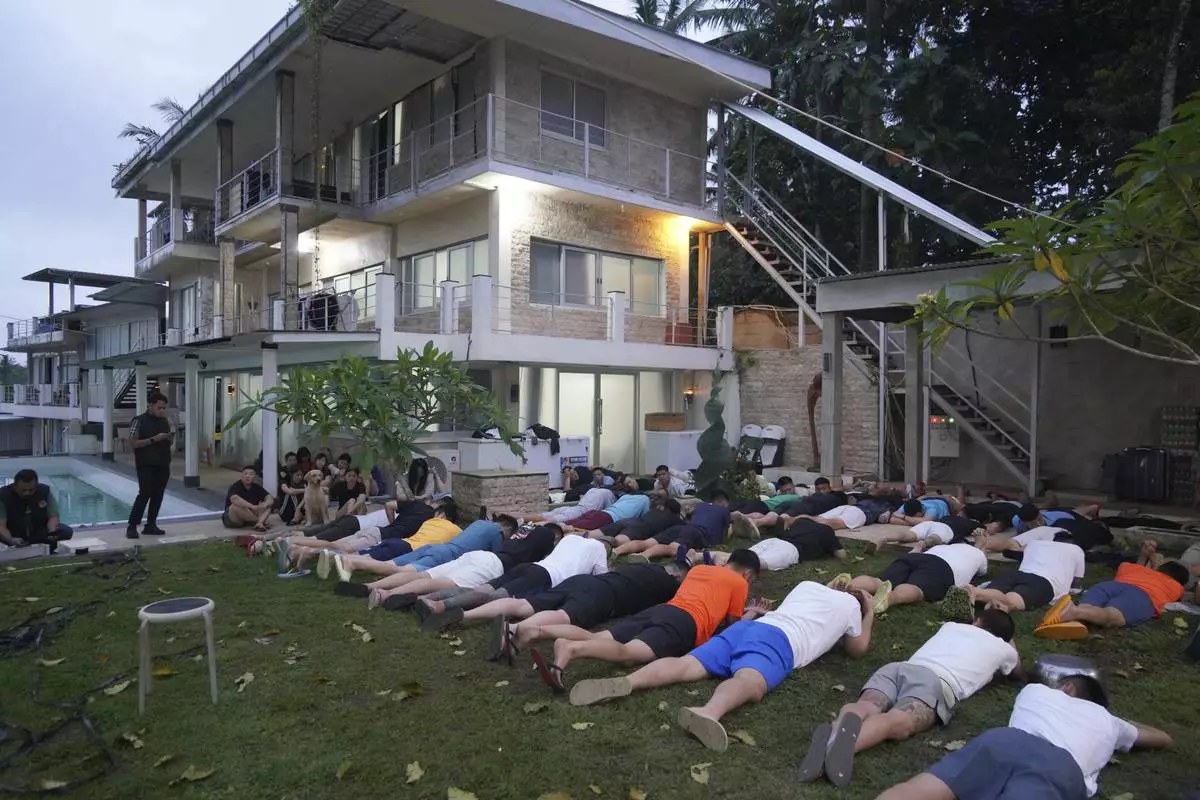
In this photo released by the Directorate General of Immigration of Indonesia's Justice and Human Rights Ministry (Ditjen Imigrasi), foreign nationals from China, Taiwan and Malaysia who are detained on allegations of conducting cybercrime and visa violations are lined up on the ground following a raid on a villa in Tabanan, Bali, Indonesia, Wednesday, June 26, 2024. (Ditjen Imigrasi via AP)
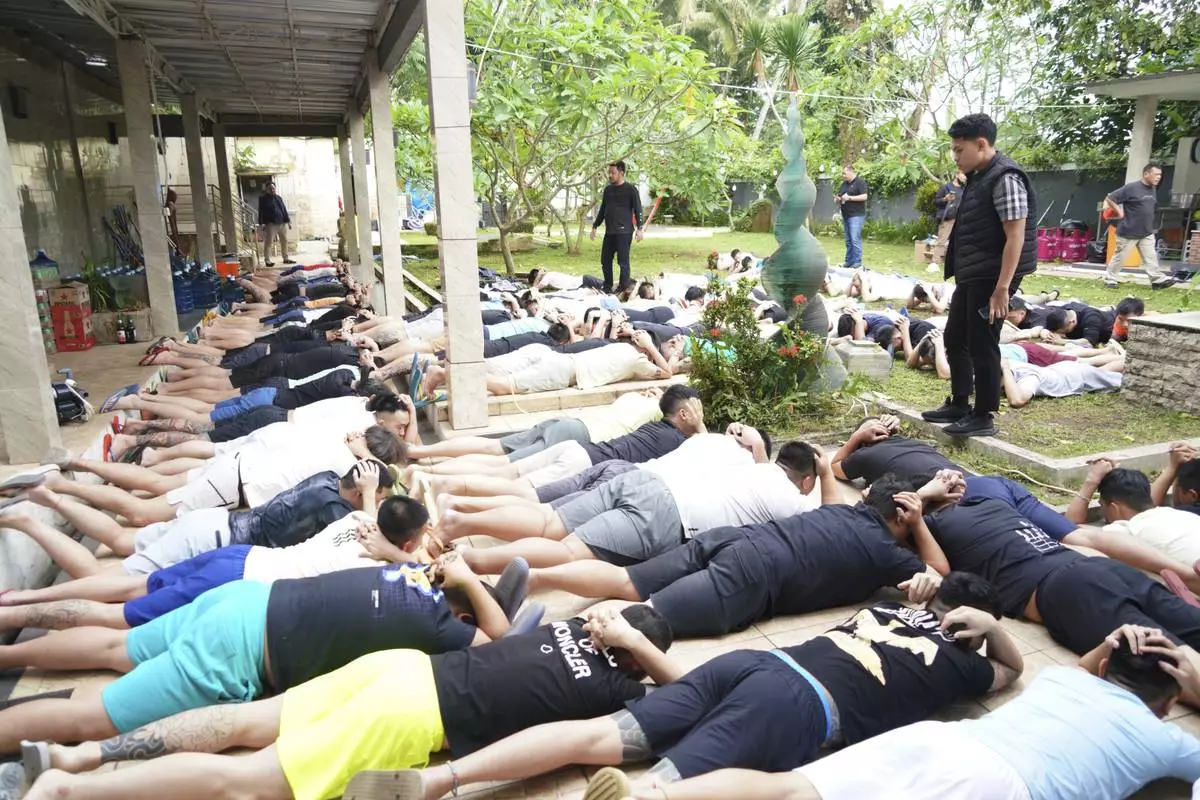
In this photo released by the Directorate General of Immigration of Indonesia's Justice and Human Rights Ministry (Ditjen Imigrasi), foreign nationals from China, Taiwan and Malaysia who are detained on allegations of conducting cybercrime and visa violations are lined up on the ground following a raid on a villa in Tabanan, Bali, Indonesia, Wednesday, June 26, 2024. (Ditjen Imigrasi via AP)
GUWAHATI, India (AP) — At least nine workers are trapped inside a flooded coal mine in India’s northeastern Assam state, officials said Tuesday, as authorities summoned the army to help in the rescue operation.
The miners became trapped on Monday morning in the Umrangso area in Dima Hasao district, about 125 miles (200 kilometers) south of the state capital, Guwahati.
The workers are “feared trapped 300 feet below the ground after water gushed in from a nearby unused mine. We are mobilizing resources to rescue them,” said Kaushik Rai, a local government minister who is monitoring the rescue efforts.
Army soldiers and a national disaster management team at the site used ropes and cranes to assist the ongoing operation.
Rescuers found three helmets, some slippers and a few other items, Rai said. "The divers have been able to dive into 35 or 40 feet of water inside the mine. The water level now is estimated at 100 feet,” he said.
Assam Chief Minister Himanta Biswa Sarma said on the social media platform X that the mine appeared to be illegal and that police had arrested one person as they investigate the case.
Workers at the site said over a dozen miners had been trapped inside the mine, which has minimum safety measures, and some managed to escape as water from a nearby unused mine began filling the mine.
In India’s east and northeast, workers extract coal in hazardous conditions in small “rat hole” mines that are narrow pits in the ground, usually meant for one person to go down, and are common in hilly areas. The coal is usually placed in boxes that are hoisted to the surface with pulleys. In some cases, miners carry coal in baskets up on wooden slats flanking the walls of the mines.
Accidents in illegal mines are frequent and the livelihoods of those who do such mining depend on the illegal sale of coal. At least 15 miners were killed after getting trapped in one such mine in Meghalaya state in 2019.
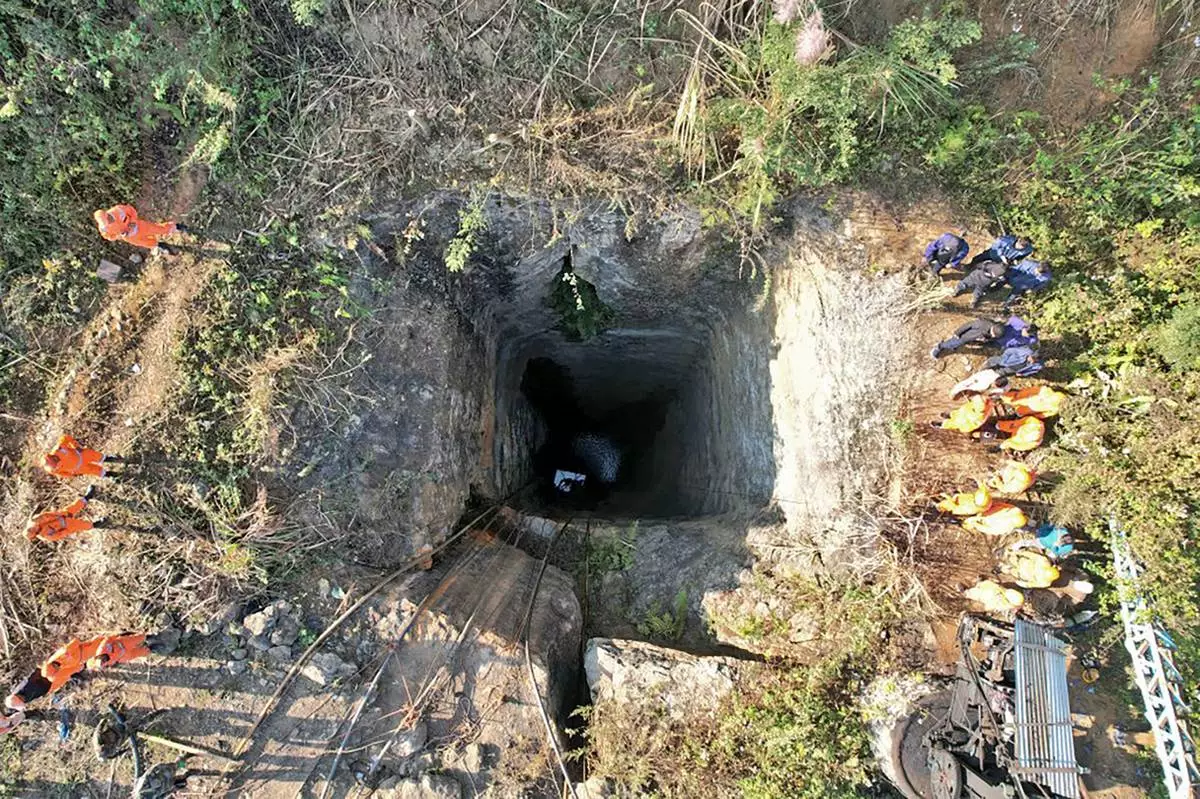
This image provided by Indian Army shows rescue workers standing around a coal mine where at least nine workers are trapped, in Umrangso area of Dimapur Hasao district in northeastern state of Assam, India, Tuesday, Jan. 7, 2025. (Indian Army via AP)
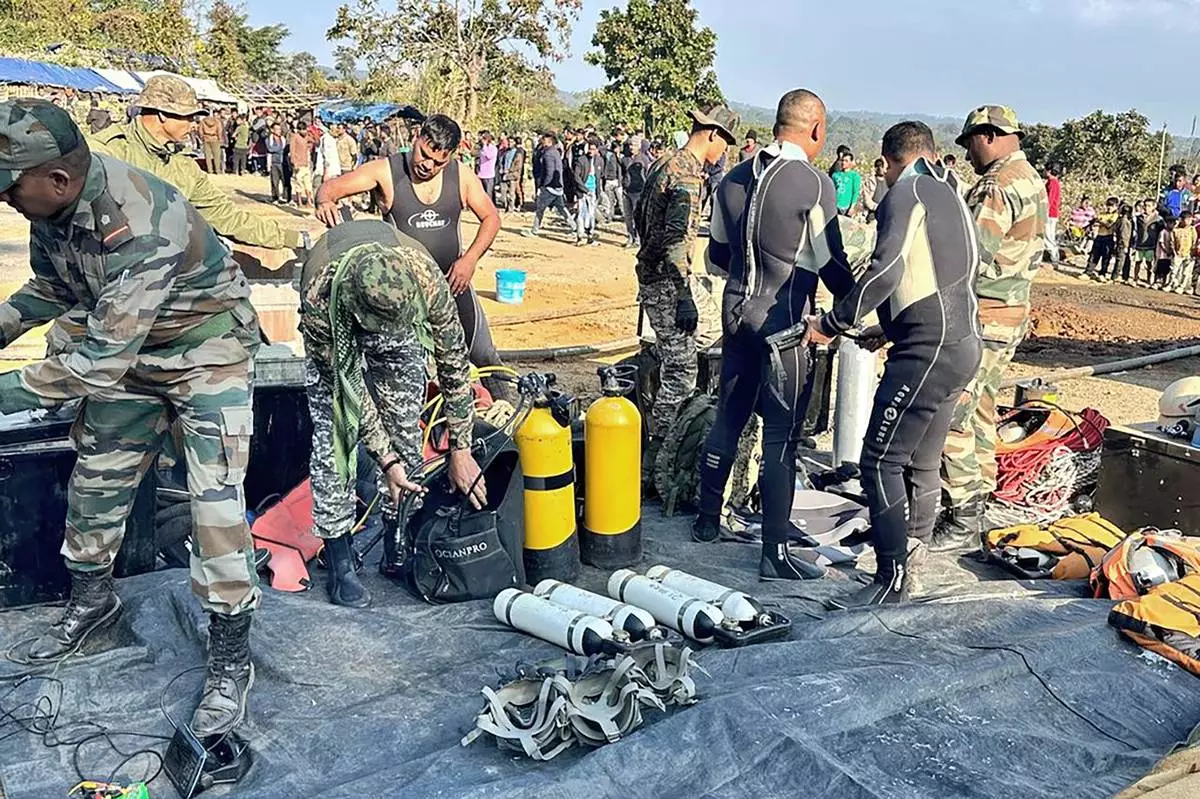
This image provided by Indian Army shows soldiers preparing their equipment to rescue workers who are trapped inside a coal mine, in Umrangso area of Dimapur Hasao district in northeastern state of Assam, India, Tuesday, Jan. 7, 2025. (Indian Army via AP)
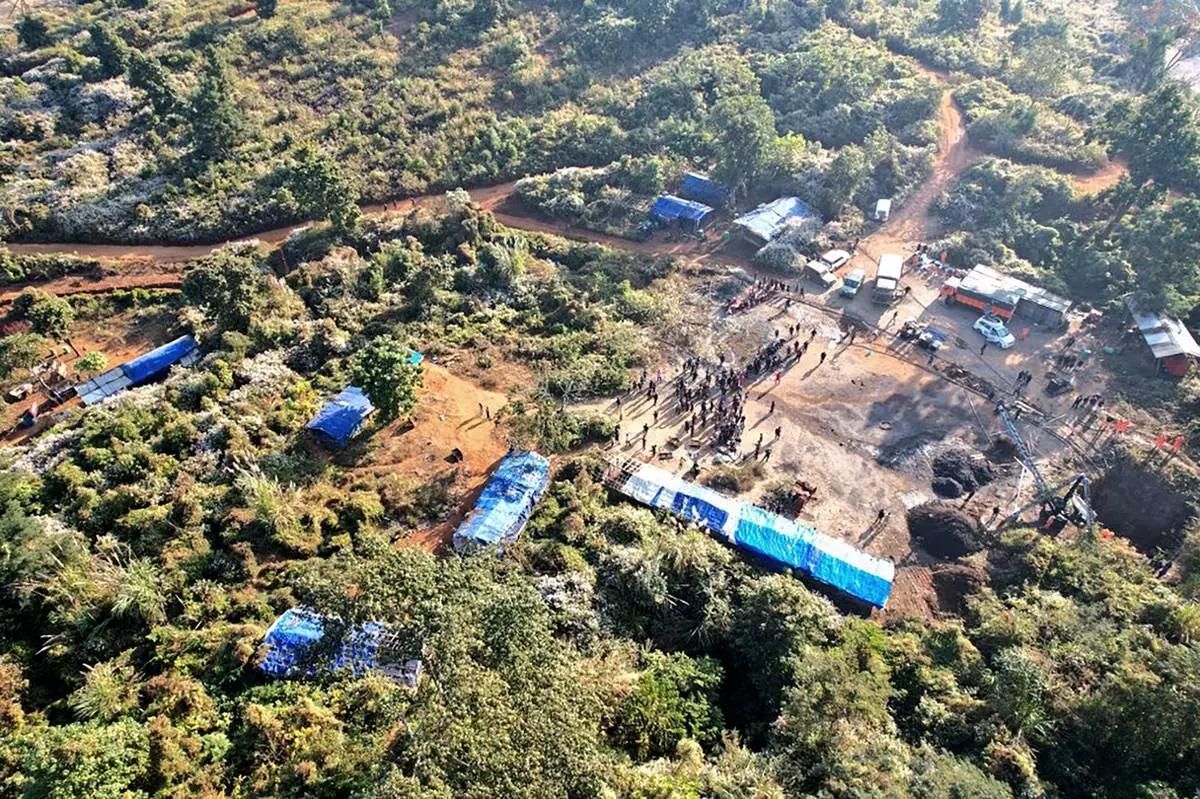
This image provided by Indian Army shows an aerial view of the site where at least nine workers are trapped inside a coal mine, in Umrangso area of Dimapur Hasao district in northeastern state of Assam, India, Tuesday, Jan. 7, 2025. (Indian Army via AP)




